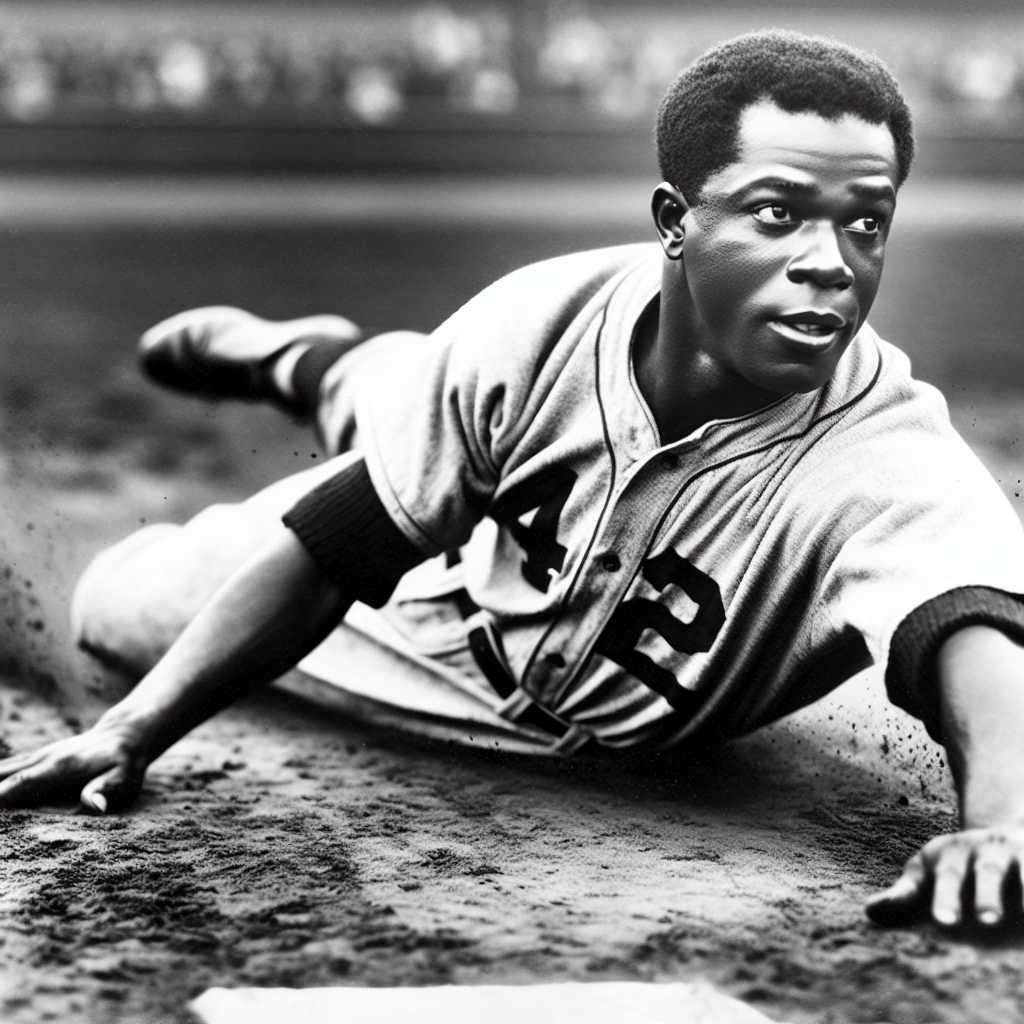The Enduring Legacy of Jackie Robinson: Breaking Baseball’s Color Barrier and Beyond
Jackie Robinson is a name that resonates not just in the world of sports, but across the landscapes of American history and civil rights. As the man who broke Major League Baseball’s (MLB) color barrier in 1947, Robinson’s legacy extends beyond the baseball diamond, encapsulating courage, perseverance, and the ongoing struggle for racial equality. This extensive article examines Robinson’s early life, his historic entry into MLB, his impact on civil rights and legacy.
Early Life and the Formative Years
Born on January 31, 1919, in Cairo, Georgia, Jack Roosevelt Robinson was the youngest of five children. The Robinson family faced the challenges of poverty and racism from an early stage. Jackie’s athletic talent became apparent during his high school years in Pasadena, California, and further blossomed at UCLA, where he became the university’s first athlete to win varsity letters in four sports: baseball, basketball, football, and track.
Robinson’s Rise Through Segregated Sports
Before his MLB debut, Robinson played semi-professionally and served in the US Army during World War II. After facing and overcoming discrimination in the military, he played one season in the Negro Leagues for the Kansas City Monarchs. His performance caught the eye of Brooklyn Dodgers’ president Branch Rickey.
Breaking Baseball’s Color Barrier
On April 15, 1947, Jackie Robinson took his place at first base for the Brooklyn Dodgers and made history. With this act, he ended approximately sixty years of segregation in professional baseball, often referred to as the “color line.” During that barrier-breaking season, despite facing intense racism from fans and opposing teams alike, Robinson demonstrated exemplary composure and on-field prowess, earning him the inaugural MLB Rookie of the Year award.
On-Field Accomplishments and Continued Struggle
Robinson’s impact on the game was significant. His career statistics over ten seasons with the Dodgers include a batting average of .311 and 137 home runs. He was selected for six consecutive All-Star Games from 1949 to 1954 and helped guide his team to six National League pennants and one World Series championship in 1955.
However, his performance wasn’t just statistically significant—it was symbolically resonant. Each game served as another step in the journey toward equality in America. He demonstrated that African American players could not only compete but excel at the highest levels of professional baseball.
Expanding Influence: Civil Rights Activism
Jackie Robinson’s influence spread well past his baseball career. He was an active participant in the civil rights movement and used his prominence to challenge racial injustices throughout his life, speaking against segregation and advocating economic opportunities for black Americans. He supported campaigns to boost black employment and conducted fundraisers for the NAACP. In the latter part of his life, he continued writing columns about social issues.
Legacy and Continued Impact
After retiring from baseball, Jackie Robinson became a business executive and continued as an influential figure for civil rights causes until his death on October 24, 1972. Proving that his legacy would long outlive him, Major League Baseball universally retired his number, 42, across all teams in 1997—a radical homage reflecting his groundbreaking impact on both the sport and society.
The significance of Robinson’s boundary-breaking role is commemorated each year on April 15th — now celebrated as Jackie Robinson Day in MLB, when all players wear number 42 to honor his enduring legacy.
